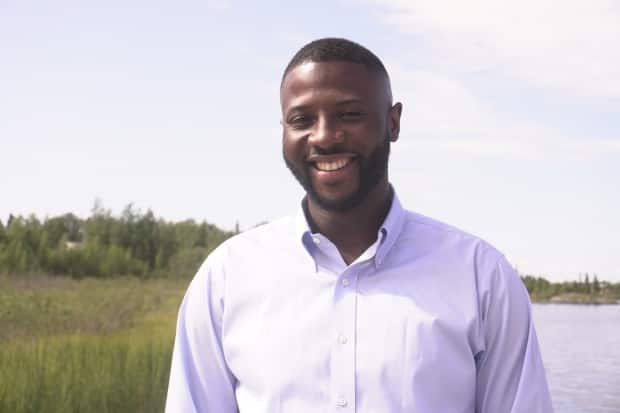Canada's 1st Emancipation Day an opportunity, say members of Yellowknife's Black community

For the first time, Canada is formally recognizing Emancipation Day to commemorate the end of legal slavery in Canada.
Aug. 1, 1834, marks the day the slavery abolition act came into effect across the British Empire, and Aug. 1, 2021 is Canada's first Emancipation Day in recognition.
Ambe Chenemu is the president of Black Advocacy Coalition up North (BACupNorth), which seeks to advocate for, empower and unite Black residents across the territories.
He says Emancipation Day has been a long time coming and that its formal recognition "is a huge step forward for Canada and for the Black and Indigenous communities."
"It's a day that we deserve," he said. "Canada has always denied the history of slavery, the history of injustice for Black and Indigenous peoples, and this acknowledgement of Emancipation Day really brings that history closer to Canadians."
The transatlantic slave trade – the journey that stole and transported Africans from their homes – is estimated to have caused over 2 million Black people to die from malnourishment, abuse and resistance fighting.
Those who landed in North America were then exposed to further abuse as slaves working in the fields and homes of their owners.
They were forced to change their names, abandon their cultures and stop speaking their mother tongues. All of which were enforced by Canadian laws.
Indigenous people were likewise kidnapped and enslaved by colonial owners who considered them as property.
Emancipation Day "brings awareness to Canadians to recognize that we're not just, as some people say, playing the race card," Chenemu said. "These are all things that actually happened."
Inemesit Essien Graham, a Yellowknife artist born in Nigeria, points to the newly recognized Emancipation Day as an opportunity for learning.
"Those who fail to learn history are doomed to repeat it," she said, quoting Winston Churchill.

Graham recounts stories of Black women being tortured and sexually abused to reproduce more Black children who could be enslaved. Those who couldn't reproduce, she said, were subject to medical experimentation.
"It's important to know that these things can happen," she said.
"Without having an understanding of slavery and the legacy of all the things that happened after slavery, you wouldn't have an understanding of the significance of movements like Black Lives Matter."
Graham again echoed Churchill in saying that history is written by the victors.
"If you want a full understanding of history, you're going to have to expand your sources," she said, urging residents to consume television, books and social media content from creators of varying backgrounds.
Jason Snaggs, the CEO of the Yellowknives Dene First Nation, has heritage that goes back to Trinidad and Tobago.
"I am the great great grandson of former slaves," he said.
Snaggs said Emancipation Day is a day to "recognize our past," and "thank the people who have paved the way," but also "to recognize the issues that exist."

Despite the abolition of legal slavery in 1834, institutional racism is ongoing.
Snaggs points to the overrepresentation of racialized inmates in the prison system, Black and Indigenous people being overlooked for employment and unconscious bias as examples of the legacy slavery has left.
"I always tell my sons you have to work twice as hard as European students in your class," he said.
"You will experience racism, whether it's while you're driving in certain areas of Canada or whether you are just trying to go through the political system in terms of getting access to services, whether it be medical care or whatever."
For those who may not know the history of slavery in this country, Snaggs said that Emancipation Day "is an opportunity now to recognize the past with a view to building a brighter future when it comes to eliminating racism, bringing more awareness of the history and working together for the benefit of all citizens."

